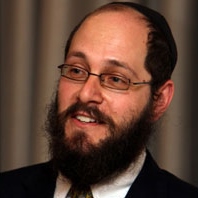
Parshot/Festivals

How to tackle terror
Rabbi Ari Shishler, Chabad of Strathavon
The fall of the Egyptian superpower to Moses and his people sent shockwaves through the developed world. The kings of Canaan and Moab still remained shaken 40 years later. From Philistine to Midian, no nation dared cross the Jews.
Except one.
Amalek laughed off the wild stories of Jewish miracles, and instead rushed headlong to ambush our fledgling nation.
Terror is insolent. Terror is also cowardly. It feeds off us. As Jews, we believe that it leeches off our spiritual insecurities. Just before the Amalek attack, Jews had started to complain, “Is G-d with us or not?” To wit, they had just escaped Pharaoh’s inescapable regime, and had witnessed the parting of the sea. They were enjoying daily manna parcels, and surviving the desert sun thanks to divine climate control.
Rashi, the foremost Torah commentator, compares their attitude to a petulant child on his dad’s shoulders. Dad happily lugs his son around all day, handing him snacks and drinks on demand. Then, they pass a stranger, and the son asks, “Have you seen my father anywhere?” Insulted, the father drops his son to the ground, and just then, a dog runs up and bites the boy.
“When the Jews grew unsure of G-d’s constant care and protection,” says Rashi, “he exposed them to Amalek to remind them not to take Him for granted.”
Terror lives off doubt. If we are uncertain of G-d’s protection and lean instead on military might or political prowess, we become vulnerable to attack.
The corollary is that trust in G-d weakens terror. During the Amalek skirmish, Moses famously climbed a hill and raised his hands. As long as he held his hands high, the Jews overcame. As his arms sagged with fatigue, the battle turned in Amalek’s favour.
Obviously, Moshe’s hands couldn’t make or break the war. Stretching heavenward, his hands served to remind the people to look towards G-d for victory. As long as they recognised G-d’s control, their enemies stood no chance against them. If they slipped back into questioning, “Is G-d with us?” they faltered.
Zachor means “remember”. Remember that terror remains, even after Auschwitz. Remember that it may strap on a suicide belt, or weave a smooth, anti-Jewish political narrative. Remember that terror often whispers words of self-doubt, just as we are poised for Jewish progress.
Regardless, terror is always insolent, inconsiderate, and only as powerful as we allow it to be. Zachor urges us to expose terror swiftly, and get rid of it. Zachor links to Purim, a chapter of Jewish history when we scuttled the largest terror plot against us by first reconnecting to G-d, and only then petitioning the king.




